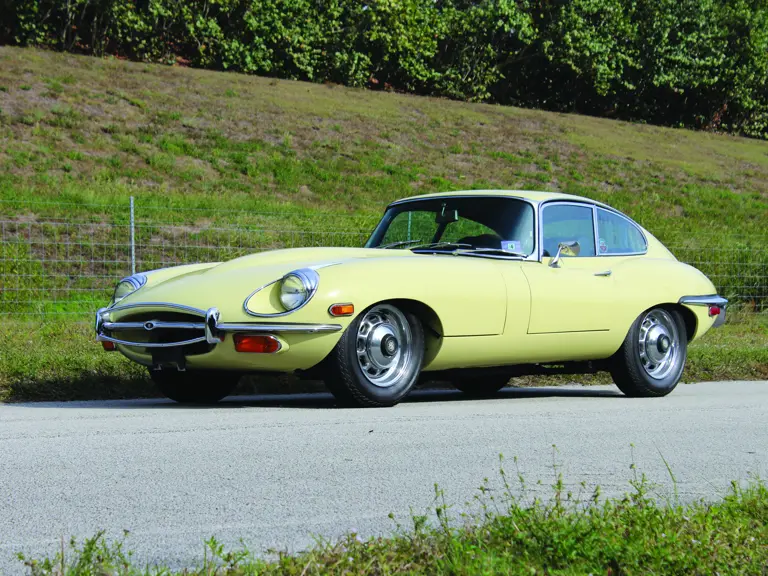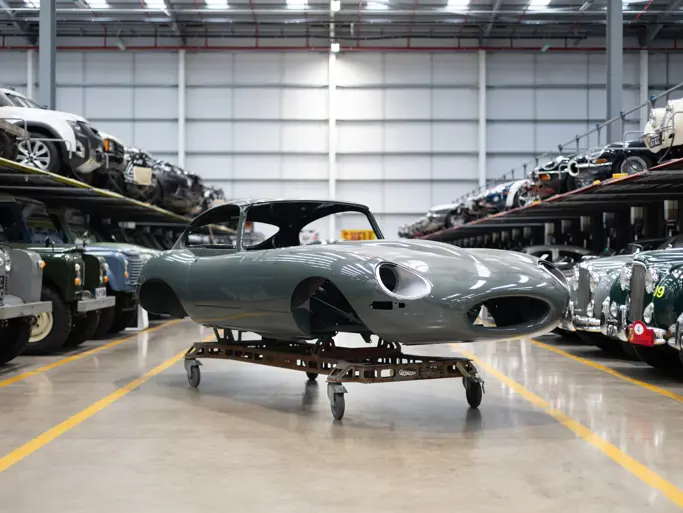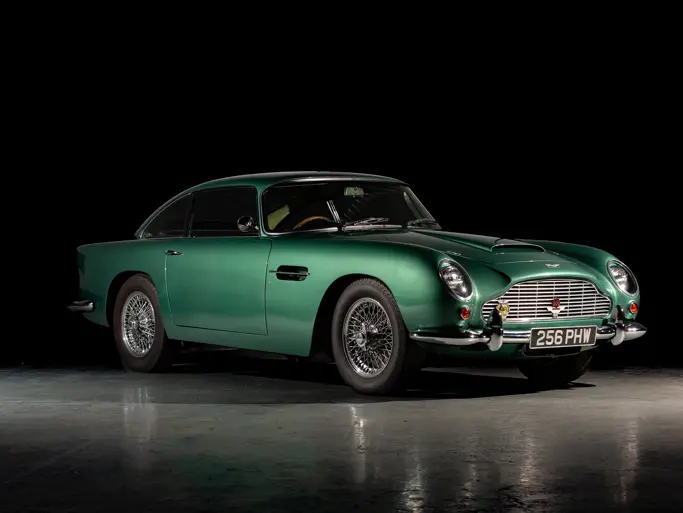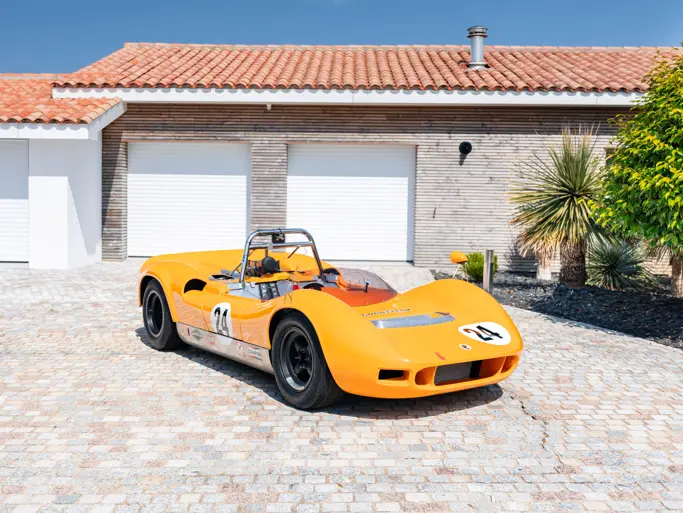
1969 Jaguar E-Type Series 2 4.2-Litre Fixed Head Coupe
{{lr.item.text}}
$57,200 USD | Sold
{{bidding.lot.reserveStatusFormatted}}
- 4.2-liter inline six-cylinder engine
- Four-speed manual transmission
- Over four decades of single family ownership until 2015
- Jaguar Heritage Certificate
- Restoration completed in 2007
Over time, experience and worldwide demand dictated many changes in the sublimely beautiful Jaguar E-Type. This culminated in 1968 with the introduction of the Series II, a substantial redesign that foreshadowed the final Series III V-12 that eventually debuted for 1971. Federal regulations in the U.S.A., Jaguar’s most important export market, drove some of the Series II changes. This included revised lighting and the shift to a pair of carburetors in place of the earlier triple-carb arrangement. The well-proven 4.2-liter, 266-hp inline six-cylinder was little changed, although a higher-capacity water pump helped the E-Type adapt better to warmer climates. Braking was improved as well, with larger Girling disc brakes utilizing three-piston calipers at the front and two-piston units at the rear. Inside, more comfortable reclining seats with adjustable headrests were now standard. The Series II revisions marked the maturation of the landmark E-Type and made a great car even better.
This Jaguar has been “frame-off” restored over a number of years, seeing its completion in 2007. It comes with a Jaguar Heritage Certificate with its production trace showing the car was originally presented in Pale Primrose (light yellow) and Black; as the car is beautifully finished.
The Jaguar is powered by the aforementioned 4.2-liter inline six engine, which is paired to a console-shift four-speed manual transmission. With instruments by Smiths; the speedometer and tachometer dominates the driver’s view of the dash, while the additional factory instrumentation and numerous systems toggle switches give the cockpit an overall aircraft (of the period) feel. There is a strategically placed handbar for the passenger that braces from the right of the glovebox to the base of the windshield pillar that can come in handy if the driver is putting the car through its well-intended paces. The car has a great overall appearance that is highlighted by the factory chrome steel wheels, four-wheel disc brakes and modern audio.
When the Jaguar was acquired by a new owner in 2015, it had come from over four decades of single-family ownership. The original family that owned the car was the same family that ensured the cars restoration was completed correctly.


 | Fort Lauderdale, Florida
| Fort Lauderdale, Florida


